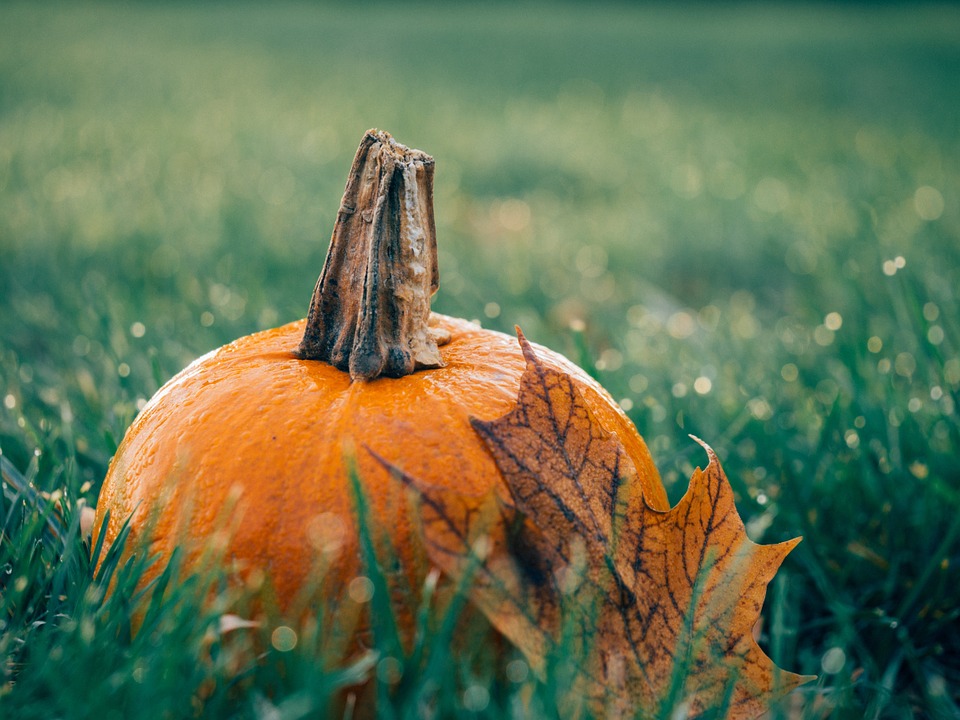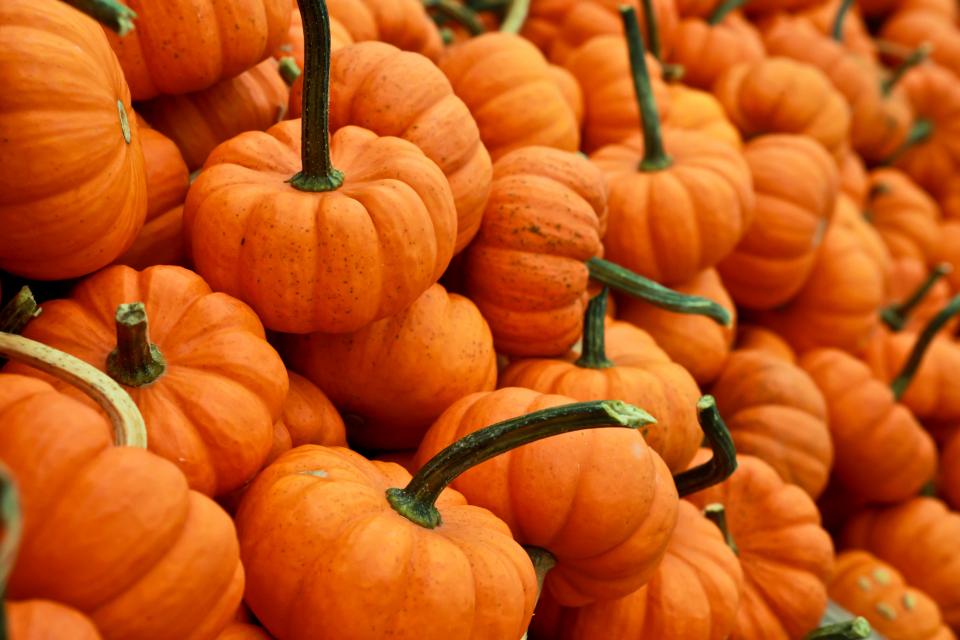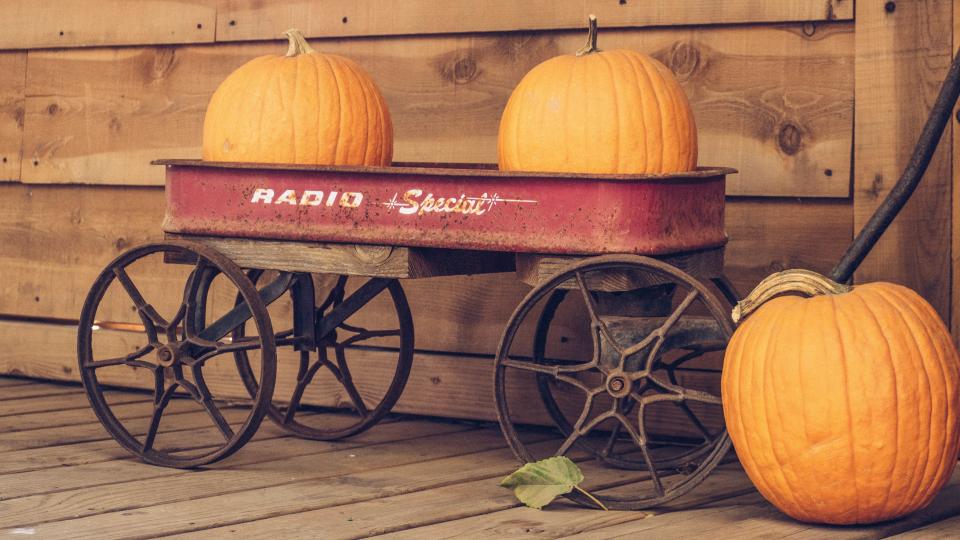This article explores the safety and benefits of feeding pumpkin to cats, addressing common questions and providing guidance on incorporating pumpkin into your feline's diet. We'll delve into the nutritional value of pumpkin, discuss the different forms in which it can be fed, and outline the potential risks and precautions to consider. By understanding the ins and outs of pumpkin feeding, you can make informed decisions about whether this versatile treat is suitable for your furry friend.
Part 1: Pumpkin's Nutritional Value for Cats

1.1 Pumpkin: A Rich Source of Essential Nutrients
Pumpkin is a nutritional powerhouse, offering a range of vitamins, minerals, and fibre that can benefit feline health. It's packed with:
- Vitamin A: Essential for healthy vision, skin, and immune function. Pumpkin is a rich source of beta-carotene, which the body converts into Vitamin A. This is particularly important for cats, as they cannot produce their own Vitamin A.
- Vitamin C: A powerful antioxidant that supports immune health. While cats can produce their own Vitamin C, additional intake from sources like pumpkin can be beneficial, especially for cats under stress or with compromised immune systems.
- Vitamin E: Contributes to healthy skin and coat, protecting cells from damage caused by free radicals. A shiny, healthy coat is a good indicator of overall health in cats.
- Potassium: Important for maintaining healthy blood pressure and muscle function. Adequate potassium intake is crucial for regulating fluid balance and nerve function.
- Fibre: Promotes digestive health, helps prevent constipation, and can aid in weight management. Pumpkin contains both soluble and insoluble fibre, which contribute to healthy digestion and bowel function.
1.2 Pumpkin's Role in Digestive Health
Pumpkin's high fibre content makes it a valuable aid for digestive issues in cats. The soluble fibre in pumpkin absorbs water in the gut, creating a softer, bulkier stool that helps to regulate bowel movements. This can be particularly helpful for cats experiencing constipation, often a common issue in older cats or those with sedentary lifestyles. The fibre also helps to promote the growth of beneficial bacteria in the gut, further supporting digestive health.
1.3 Pumpkin for Weight Management
Pumpkin's low calorie content and high fibre content make it a suitable ingredient for weight management plans. The fibre helps to promote feelings of fullness, reducing overall food intake and contributing to a healthy weight. Additionally, the increased fibre content in pumpkin helps to regulate blood sugar levels, further aiding in weight management.
1.4 Pumpkin for Urinary Tract Health
While pumpkin isn't a direct treatment for urinary tract issues, its high water content can help to flush out the urinary tract and prevent the formation of urinary crystals. The fibre in pumpkin can also help to regulate bowel movements, which can indirectly contribute to overall urinary tract health.
Part 2: Safe Ways to Feed Pumpkin to Your Cat

2.1 Introducing Pumpkin to Your Cat
When introducing pumpkin to your cat, it's crucial to start slowly. Begin by offering a small amount, such as a teaspoon, and observe your cat's reaction. If they tolerate it well, you can gradually increase the amount over a few days. Pay attention to their stool consistency and overall behaviour for any signs of digestive upset.
2.2 Plain Cooked Pumpkin: The Best Option
The safest and most digestible form of pumpkin for cats is plain, cooked pumpkin. Avoid canned pumpkin pie filling, as it often contains added sugars, spices, and preservatives that can be harmful to cats.
2.3 Pumpkin Puree: A Convenient Choice
Pumpkin puree, found in the canned goods aisle, is a convenient option for feeding your cat pumpkin. It's readily available and can be easily incorporated into their food. However, always choose pure pumpkin puree without added ingredients or flavourings. Look for labels that state "100% pure pumpkin" or "plain pumpkin puree."
2.4 Pumpkin Seeds: A Nutritional Treat
Pumpkin seeds are a nutritious treat for cats, providing additional protein, healthy fats, and fibre. However, they should be given in moderation as they are higher in fat and calories than pumpkin flesh. Ensure seeds are roasted and unsalted for safe consumption. You can offer them as a snack or sprinkle them on top of their food.
2.5 Pumpkin in Homemade Cat Food
Pumpkin can be added to homemade cat food recipes to enhance nutritional value and add flavour. Ensure the pumpkin is cooked and pureed for optimal digestibility. You can incorporate it into meat-based recipes, such as chicken or turkey, for a complete meal.
Part 3: Potential Risks and Precautions

3.1 Pumpkin Allergies: Rare but Possible
Although rare, some cats may experience an allergic reaction to pumpkin. Symptoms can include skin irritation, vomiting, diarrhoea, or difficulty breathing. If you notice any adverse reactions, discontinue feeding pumpkin and consult your veterinarian immediately.
3.2 Moderation is Key
While pumpkin is generally safe for cats, excessive consumption can lead to digestive upset. Stick to recommended guidelines and observe your cat for any signs of discomfort. A good starting point is 1-2 teaspoons of pumpkin puree per day, depending on your cat's size and activity level.
3.3 Monitor Your Cat's Intake
Always monitor your cat's intake of pumpkin, especially if they are on a special diet or have underlying health conditions. Consult your veterinarian for guidance on appropriate amounts. They can recommend a specific amount based on your cat's individual needs and any pre-existing health concerns.
3.4 Avoid Adding Salt or Sugar
Never add salt or sugar to pumpkin when feeding it to your cat. These ingredients can be harmful to their health. Salt can contribute to high blood pressure and kidney problems, while sugar can lead to obesity and other health issues.
Part 4: FAQs
4.1 Can I give my cat raw pumpkin?
It's not recommended to give your cat raw pumpkin. Raw pumpkin can be difficult to digest and may contain harmful bacteria. The cooking process helps to break down the fibres and reduce the risk of bacterial contamination.
4.2 Can I feed my cat pumpkin pie filling?
No, pumpkin pie filling is not safe for cats. It contains added sugars, spices, and preservatives that can be toxic to cats. These ingredients can cause digestive upset, weight gain, and other health problems.
4.3 How often can I give my cat pumpkin?
A small amount of pumpkin can be given to your cat 1-2 times per week. This frequency allows for the benefits of pumpkin to be enjoyed without causing any digestive discomfort.
4.4 Can pumpkin help with urinary tract problems in cats?
Pumpkin is not specifically proven to help with urinary tract issues in cats. However, its high water content can help to flush out the urinary tract and prevent the formation of urinary crystals. The fibre in pumpkin can also help to regulate bowel movements, which can indirectly contribute to overall urinary tract health.
4.5 Can I give my cat pumpkin seeds every day?
Pumpkin seeds should be given in moderation due to their higher fat content. It is best to give them as an occasional treat rather than daily. A few pumpkin seeds sprinkled on their food 1-2 times per week is a safe and healthy option.
4.6 What if my cat doesn't like pumpkin?
If your cat isn't interested in pumpkin, there are many other healthy and safe foods you can offer them. There's no need to force them to eat it. You can try mixing a small amount of pumpkin into their regular food or offering it as a separate treat to encourage them to try it.
Part 5: Conclusion
Incorporating pumpkin into your cat's diet can provide numerous nutritional benefits, including improved digestive health, weight management, and a boost of essential vitamins and minerals. By following the guidelines outlined in this article, you can safely and effectively introduce this versatile treat into your feline's diet. Remember to consult your veterinarian if you have any questions or concerns regarding pumpkin feeding. They can offer personalized advice based on your cat's individual needs and health history.
Everyone is watching
-

Are Cat Ribs Flexible? Understanding Their Anatomy
CATS & KITTENSThis article delves into the fascinating world of feline anatomy, exploring the flexibility of cat ribs and ho...
-

Can Cats Eat Bananas? (Everything You Need to Know)
CATS & KITTENSThis article dives into the intriguing question of whether cats can safely enjoy the sweet, yellow fruit, bana...
-

Cat Lifespan: How Long Do Cats Live?
CATS & KITTENSThis comprehensive guide explores the factors influencing the lifespan of our feline companions, providing ins...
-

Can Cats Get COVID-19? What You Need to Know
CATS & KITTENSThis article will delve into the fascinating world of feline COVID-19 susceptibility. We'll explore whether ca...
-

Can Cats Eat Eggs? A Complete Guide to Egg Safety for Your Feline Friend
CATS & KITTENSWhen it comes to treating our furry companions, we all want to ensure we're doing what's best for them. Eggs...
